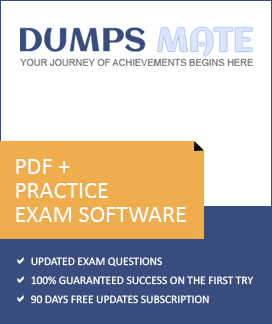Comprehensive and Detailed Explanation From Exact Extract:
To determine which SOQL queries are safe from SOQL injection, we need to evaluate each option for how it handles the name parameter (user input from a Visualforce page) and whether it properly mitigates the risk of SOQL injection. SOQL injection occurs when untrusted user input is directly embedded into a query string, allowing malicious users to manipulate the query’s logic. Let’s analyze each option systematically, referencing Salesforce’s official documentation, particularly the Secure Coding Guidelines and Apex Developer Guide.
Understanding SOQL Injection:
SOQL Injection: This vulnerability arises when user input is dynamically concatenated into a SOQL query string without proper sanitization, allowing an attacker to alter the query’s behavior. For example, if name is ' OR '1'='1, an unsafe query might return all records instead of the intended subset. The Salesforce Secure Coding Guidelines state: “SOQL injection occurs when untrusted input is concatenated into a query string, potentially allowing an attacker to bypass intended logic” (Salesforce Secure Coding Guidelines, SOQL Injection).
Prevention Techniques:
Bind Variables (:variable): Using bind variables in SOQL queries ensures user input is treated as a value, not part of the query logic, preventing injection. The Apex Developer Guide notes: “Using bind variables (:variable) in SOQL queries is the safest way to prevent SOQL injection” (Salesforce Apex Developer Guide, Secure Coding for SOQL).
Sanitization: If dynamic SOQL (e.g., Database.query()) is used, user input must be sanitized using methods like String.escapeSingleQuotes() to escape special characters (e.g., single quotes) that could alter the query.
Context: The name variable comes from a Visualforce page, meaning it’s untrusted user input and must be handled carefully to prevent injection.
Evaluating the Options:
apex
Copy
String query = '%' + name + '%';
List results = [SELECT Id FROM Account WHERE Name LIKE :query];
Approach: Constructs a query string by concatenating wildcards (%) with the name variable, then uses a bind variable (:query) in the SOQL query.
Security: Using a bind variable (:query) ensures that the value of query (which includes name) is treated as a literal value in the LIKE clause, not as part of the query’s syntax. Even if name contains malicious input (e.g., ' OR '1'='1), the SOQL engine treats it as a single string to match against Name, preventing injection. The Apex Developer Guide confirms: “Bind variables prevent SOQL injection by treating user input as data, not executable code” (Salesforce Apex Developer Guide, Secure Coding for SOQL).
Example: If name = 'Test' OR '1'='1, then query = '%Test' OR '1'='1%'. The SOQL query becomes:
apex
Copy
[SELECT Id FROM Account WHERE Name LIKE '%Test\' OR \'1\'=\'1%']
This searches for records where Name matches the literal string %Test' OR '1'='1%, which is safe and does not alter the query logic.
apex
Copy
String query = 'SELECT Id FROM Account WHERE Name LIKE \'%' + name.noQuotes() + '%\'';
List results = Database.query(query);
Approach: Dynamically constructs a SOQL query string by concatenating name.noQuotes() into the query, then executes it using Database.query().
Security: The noQuotes() method is not a standard Apex method on the String class. The Apex Developer Guide does not define noQuotes() as a built-in method (Salesforce Apex Developer Guide, String Class). Assuming it’s a custom method, it likely attempts to remove quotes from the string, but this does not prevent SOQL injection. Concatenating user input directly into the query string is inherently unsafe unless properly sanitized.
Example: If name = 'Test' OR '1'='1, and assuming noQuotes() does nothing (or removes quotes, which doesn’t help), the query becomes:
apex
Copy
SELECT Id FROM Account WHERE Name LIKE '%Test' OR '1'='1%'
The OR '1'='1' condition evaluates to true for all records, returning all Accounts, which is a successful SOQL injection attack.
apex
Copy
String query = 'SELECT Id FROM Account WHERE Name LIKE \'%' + String.escapeSingleQuotes(name) + '%\'';
List results = Database.query(query);
Approach: Dynamically constructs a SOQL query string by concatenating name into the query after applying String.escapeSingleQuotes(), then executes it using Database.query().
Security: The String.escapeSingleQuotes() method escapes single quotes in the input by adding a backslash (\), preventing the input from breaking out of the string literal in the SOQL query. The Apex Developer Guide states: “String.escapeSingleQuotes() prevents SOQL injection in dynamic queries by escaping single quotes, ensuring the input cannot alter the query structure” (Salesforce Apex Developer Guide, String Class). This ensures that even malicious input cannot manipulate the query logic.
Example: If name = 'Test' OR '1'='1, then String.escapeSingleQuotes(name) returns Test\' OR \'1\'=\'1. The query becomes:
apex
Copy
SELECT Id FROM Account WHERE Name LIKE '%Test\' OR \'1\'=\'1%'
This searches for records where Name matches the literal string %Test' OR '1'='1%, which is safe and does not allow the OR condition to execute as logic.
apex
Copy
String query = 'SELECT Id FROM Account WHERE Name LIKE \'%' + name + '%\'';
List results = Database.query(query);
Approach: Dynamically constructs a SOQL query string by directly concatenating name into the query, then executes it using Database.query().
Security: This approach is vulnerable to SOQL injection because name is directly embedded into the query string without sanitization. The Salesforce Secure Coding Guidelines warn: “Directly concatenating user input into a dynamic SOQL query without escaping can lead to SOQL injection” (Salesforce Secure Coding Guidelines, SOQL Injection).
Example: If name = 'Test' OR '1'='1, the query becomes:
apex
Copy
SELECT Id FROM Account WHERE Name LIKE '%Test' OR '1'='1%'
The OR '1'='1' condition evaluates to true for all records, returning all Accounts, demonstrating a successful SOQL injection attack.
Why Options A and C are Correct:
Option A: Uses a bind variable (:query) in the SOQL query, ensuring that the user input (name) is treated as a literal value, not executable code. This is the most secure way to prevent SOQL injection, as recommended by Salesforce.
Option C: Uses String.escapeSingleQuotes() to sanitize the user input before embedding it into a dynamic SOQL query, preventing the input from altering the query’s logic. This is a safe approach for dynamic queries when bind variables cannot be used directly.
Options B and D: Both concatenate user input directly into the query string without adequate sanitization (noQuotes() is not a standard or reliable method in B, and D has no sanitization), making them vulnerable to SOQL injection.
Example of Vulnerability (Option D):
Consider a Visualforce page where name is set via a user input field:
apex
Copy
String name = ApexPages.currentPage().getParameters().get('name');
String query = 'SELECT Id FROM Account WHERE Name LIKE \'%' + name + '%\'';
List results = Database.query(query);
If a malicious user submits name = ' OR '1'='1, the query becomes:
apex
Copy
SELECT Id FROM Account WHERE Name LIKE '%' OR '1'='1%'
This returns all Accounts, bypassing the intended filtering, which is a successful SOQL injection attack.
Mitigating SOQL Injection:
apex
Copy
String query = '%' + name + '%';
List results = [SELECT Id FROM Account WHERE Name LIKE :query];
Alternative (Option C): If dynamic SOQL is required, sanitize input with String.escapeSingleQuotes():
apex
Copy
String query = 'SELECT Id FROM Account WHERE Name LIKE \'%' + String.escapeSingleQuotes(name) + '%\'';
List results = Database.query(query);
Handling Typos:
The options are syntactically correct in the provided image, with no typos to address.
Option B’s name.noQuotes() is not a standard Apex method, but the analysis assumes it’s a custom method that fails to prevent injection, as it’s not a recognized sanitization technique.
[References:, Salesforce Apex Developer Guide: , “Secure Coding for SOQL” section: Recommends using bind variables to prevent SOQL injection., “String Class” section: Details String.escapeSingleQuotes() for sanitizing dynamic queries., “Database Class” section: Describes Database.query() for dynamic SOQL execution.(Available at: https://developer.salesforce.com/docs/atlas.en-us.apexcode.meta/apexcode/), Salesforce Secure Coding Guidelines: , “SOQL Injection” section: Warns against concatenating untrusted input and recommends bind variables or sanitization.(Available at: https://developer.salesforce.com/docs/atlas.en-us.secure_coding_guide.meta/secure_coding_guide/), Platform Developer I Study Guide: , Section on “Salesforce Platform and Declarative Features”: Covers secure coding practices, including preventing SOQL injection in Visualforce contexts.(Available at: https://trailhead.salesforce.com/en/content/learn/modules/platform-developer-i-certification-study-guide), , , ]








